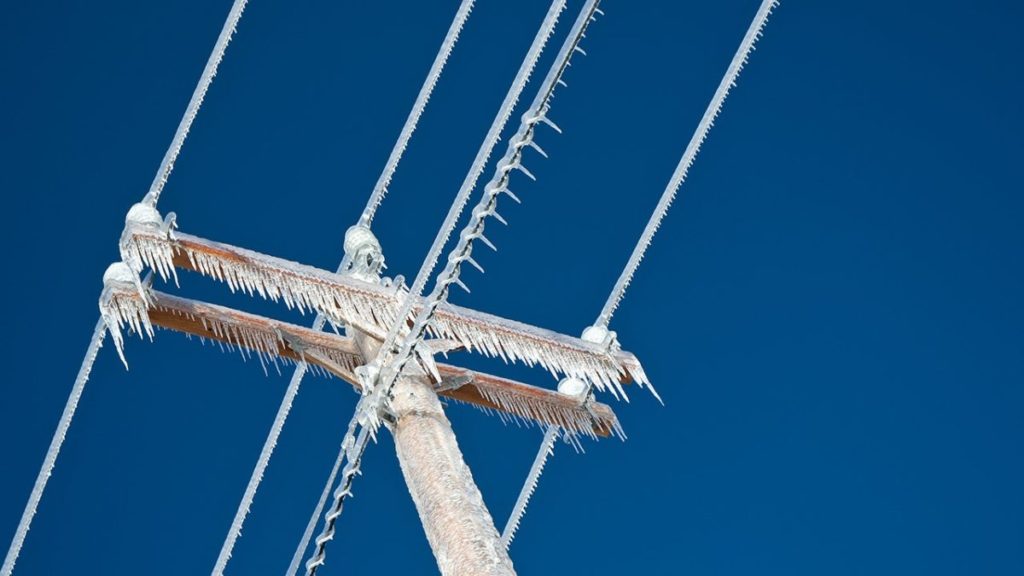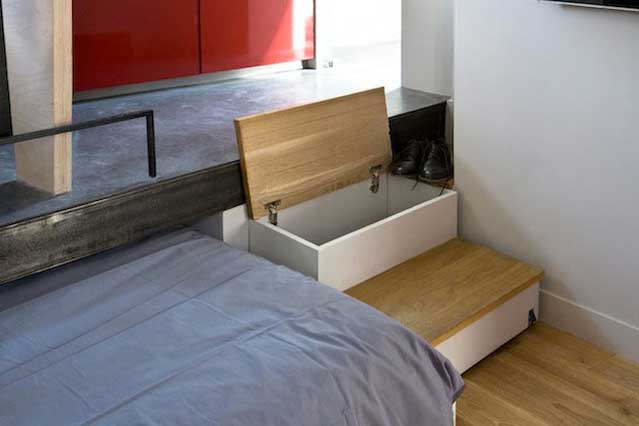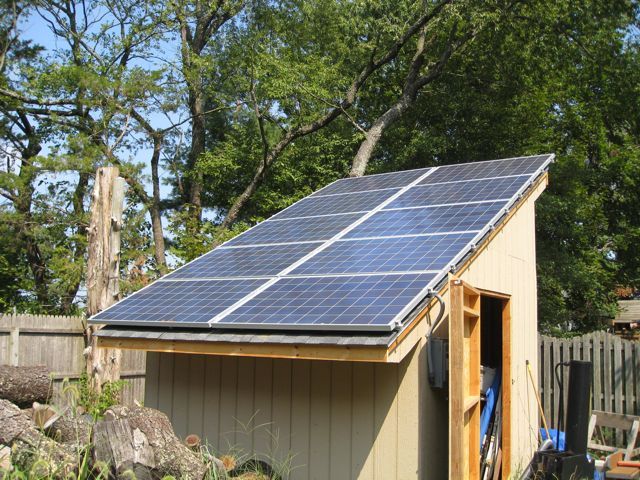As winter’s chill sets in and power outages become more frequent due to extreme weather conditions, it is important to prioritize safety when relying on alternative sources of energy.
Propane-powered generators and off-grid solar backup systems can provide a reliable source of electricity during an outage, but improper use or lack of maintenance can lead to serious hazards such as carbon monoxide poisoning or fires.
To ensure your family’s well-being and protect your home from potential risks, follow these essential safety tips for using propane powered generators and off grid solar backup sources during frigid weather outages.
By taking the proper precautions, you can keep your household running smoothly while ensuring a safe and healthy environment.
Proper installation and maintenance
Make sure that your generator and solar backup systems are properly installed and maintained to ensure that they are working efficiently and safely.
Improper installation can lead to reduced performance, increased wear and tear, and even safety hazards.
For example, if the generator is not properly anchored, it can shift during operation and cause damage to the unit or injury to the users.
Similarly, if the solar panels are not properly installed, they may not be able to produce enough power to meet your needs, or they may not be able to charge the battery properly.
Regular maintenance is also essential to ensure that your backup systems are functioning at their best.
This includes checking the oil levels, spark plugs, and battery charging systems.
If these components are not properly maintained, they can fail unexpectedly, leaving you without power when you need it most.
Proper maintenance can help extend the lifespan of your backup systems, reducing the need for costly repairs or replacements.
Overall, it is essential to invest in proper installation and maintenance to ensure that your generator and solar backup systems are running efficiently and safely.
By doing so, you can minimize downtime, reduce energy costs, and ensure that your home or business is well-equipped to handle power outages and other disruptions.
Carbon monoxide poisoning
Generators and other fuel-powered devices can produce carbon monoxide, which can be deadly. Make sure that you install a carbon monoxide detector and never use these devices indoors.
Carbon monoxide poisoning from generators and other fuel-powered devices is a silent killer that can strike without warning.
These devices can produce deadly levels of carbon monoxide, a colorless, odorless, and tasteless gas that can quickly overcome and kill you.
To prevent carbon monoxide poisoning, it is essential to install a carbon monoxide detector in your home, especially if you have a generator or other fuel-powered devices.
These detectors can alert you to dangerous levels of carbon monoxide before it’s too late.
Never use these devices indoors, as the fumes can quickly build up and prove fatal.
If you suspect carbon monoxide poisoning, leave the area immediately and call 911 or your local emergency number.
In case of a carbon monoxide emergency, it is important to act quickly and follow these steps
Leave the area immediately and get outside, as the fumes can quickly build up indoors.
Call 911 or your local emergency number to report the emergency and get assistance.
Do not use the device that is producing the carbon monoxide poisoning, as this can cause the situation to worsen.
Open windows and doors to ventilate the area and allow the carbon monoxide to escape.
If you are experiencing symptoms such as dizziness, headaches, nausea, or vomiting, seek medical attention immediately.
These symptoms can worsen quickly and prove fatal if left untreated.
Remember that it is important to take action quickly in case of a carbon monoxide emergency to prevent serious health issues and fatalities.
Always prioritize safety and be aware of the potential dangers of carbon monoxide poisoning when using fuel-powered devices.
Frozen pipes
When the power goes out, pipes can freeze and burst, causing significant damage. Insulate exposed pipes and disconnect and drain any outdoor hoses to prevent freezing.
Frozen pipes can be a major concern during power outages.
When the temperature drops, uninsulated pipes can freeze and burst, causing significant water damage to your home.
To prevent this from happening, it’s essential to insulate exposed pipes in unheated areas like the garage, basement, and crawl space.
You can use foam pipe insulation or wrap pipes with heat tape or thermostatically controlled heat cables to keep them warm.
Disconnect and drain any outdoor hoses to prevent freezing.
By taking these precautions, you can help protect your pipes and prevent costly repairs.
😄
Fire risk
Generators and other fuel-powered devices can ignite flammable materials, such as clothes, curtains, and rugs. Keep these items away from the devices and make sure that you have a fire extinguisher nearby.
When using generators or other fuel-powered devices during a power outage, it’s important to exercise caution to prevent the risk of fire.
These devices can ignite flammable materials such as clothes, curtains, and rugs, which can quickly spread and cause devastating damage.
To mitigate this risk, keep all flammable items at least three feet away from the device, and make sure that you have a fire extinguisher nearby in case of an emergency.
Always follow the manufacturer’s instructions for proper usage and maintenance, and never use these devices in enclosed spaces or near open flames.
By taking these precautions, you can significantly reduce the risk of a fire occurring and ensure a safe power outage experience.
Overheating
Generators and other devices can overheat, causing damage or starting a fire. Make sure that you keep the devices in a well-ventilated area and check them regularly for signs of overheating.
Overheating is a common issue that can arise when using generators and other devices during power outages.
When these devices work excessively hard to provide power, they can overheat and cause damage to the unit itself or even start a fire.
To prevent this from happening, it’s essential to keep the devices in a well-ventilated area to ensure proper airflow and prevent overheating.
It’s important to check the devices regularly for signs of overheating, such as steam or smoke emanating from the machine, unusual noises, or abnormal vibrations.
If you notice any of these signs, immediately shut off the device and allow it to cool down before continuing to use it.
By taking these precautions, you can help prevent overheating and ensure the safe and efficient operation of your generators and other devices during power outages.
Battery safety
If you are using a solar backup system, make sure that you store the batteries in a ventilated area and away from children and pets.
Storing your solar backup system’s batteries in a ventilated area is important to prevent any potential hazards and ensure the safety of your family, pets, and property.
Batteries produce gases as they charge and discharge, which can accumulate inside the battery casing.
If the batteries are stored in an enclosed space without proper ventilation, these gases can build up and potentially cause an explosion or fire.
Moreover, if the batteries are accessible to children or pets, they may accidentally touch the terminals or ingest any loose batteries, leading to serious injuries or even death.
By storing the batteries in a well-ventilated area, you can prevent these risks and ensure that your solar backup system operates safely and efficiently.
It’s important to keep the batteries away from any ignition sources, such as open flames or sparks, to avoid any potential fires.
Proper storage and maintenance of the batteries can help prevent any accidents and ensure the longevity of your solar backup system.
Therefore, it’s essential to follow the manufacturer’s guidelines for storing and maintaining the batteries, and to regularly inspect the system to ensure that it’s operating safely and efficiently.
Backup power sources
Make sure that you have multiple backup power sources, such as a propane powered generator and a solar backup system, to ensure that you have power even if one of the sources fails.
Investing in multiple backup power sources is a important step in ensuring that your home remains powered even when the grid goes down.
A propane powered generator and a solar backup system are two reliable options that can provide a steady supply of electricity during an outage.
A generator can run on propane, which is easily stored and accessible, and can provide power for essential appliances like refrigerators, lights, and medical equipment.
On the other hand, a solar backup system can harness the power of the sun to provide a clean and renewable source of energy.
This system typically consists of solar panels and a battery bank that stores excess energy for use during an outage.
By investing in both a generator and a solar backup system, you can ensure that your home has a reliable source of power even if one of the sources fails.
It is important to maintain and regularly test these backup systems to ensure that they are functioning properly and ready to use when needed.
Prepare an emergency kit
Have an emergency kit with essentials, such as flashlights, batteries, a first aid kit, and a manual can opener, in case you need to use the generator or other backup sources.
Preparing an emergency kit is a important step in ensuring your safety and well-being during a power outage.
This kit should include essential items such as flashlights, extra batteries, a first aid kit, and a manual can opener.
These items will provide you with light, medical supplies, and a means of opening food cans in case you need to use the generator or other backup sources.
The flashlights will allow you to move around safely and easily, even when the power is out, while the first aid kit will help you treat any injuries or illnesses that may occur.
The manual can opener will enable you to access food from cans, which can be a vital source of sustenance during an extended power outage.
By having an emergency kit with these essential items, you’ll be well-equipped to handle any challenges that come your way.
Want More? Dive Deeper Here!
Hey there! If you’re the type who loves going down the rabbit hole of information (like we do), you’re in the right spot. We’ve pulled together some cool reads and resources that dive a bit deeper into the stuff we chat about on our site. Whether you’re just killing time or super into the topic, these picks might just be what you’re looking for. Happy reading!
- (PDF) G:\PVAT\JHAGGARD\PVMANUAL\DISASTERRELIEFCOVER.CDR
- (PDF) Applications of Solar Technology for Catastrophe Response, Claims Management, and Loss Prevention
- Philip Greenspun’s Weblog – A posting every day; an interesting idea every three months…
- Solar Power is Hot! | Lighting Futures | Programs | LRC






